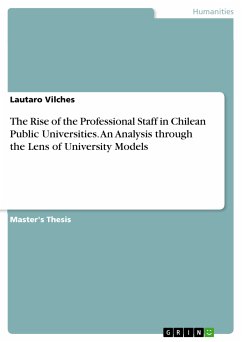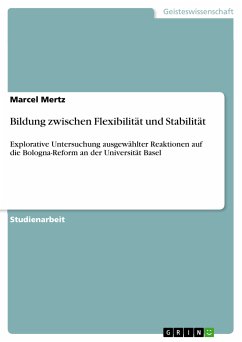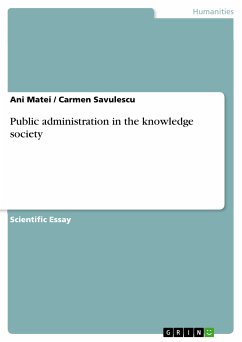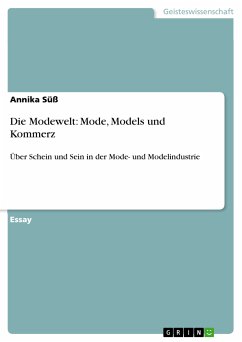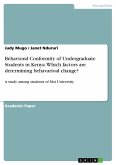Master's Thesis from the year 2019 in the subject Sociology - Knowledge and Information, grade: A, University College London (Institute of Education), language: English, abstract: The nature of work in higher education institutions is changing, in parallel to the deep transformations that the university as a whole is undergoing. Not only the academic profession is changing, but also a new group of professionals is rising. This professional staff works in functional areas where the boundaries between the academic and management sphere have become fuzzy. In developed countries, much of these transformations have been explained using as point of departure the university´s entrepreneurial transformation. Yet, how can these transformations be explained in the Latin American context? This dissertation aims at shedding light on the drivers that explain the rise of the professional staff in Chile´s leading public universities. Analytically, this phenomenon is explored through the lens of university models. It will be argued that the rise of the professional staff has to be positioned within the tensions originated by the co-existence of two models, that is to say, the entrepreneurial model, on the one hand, and the legacies of the Latin American model, on the other hand. Methodologically, this investigation adopts a qualitative case study research design. Based on interviews and official documentation, this study explores different functional areas of the university – from innovation to equity and inclusion – focusing on the interplay between the university and external actors and forces as well as on intra-organisational dynamics and the perspectives of the professional staff. The findings corroborate ideas advanced by other scholars regarding the limits of the entrepreneurial transformation and the importance of taking into account the legacies of the Latin American university model. Equally, the relevance of the university as a central actor in shaping change and supporting the expansion or emergence of established and new functional areas, which allows the rise of the professional staff, should be acknowledged.

